Why We Love Superhero Films: The Humanity Behind the Mask
This article contains spoilers for the following films: Batman Begins, The Dark Knight, Iron Man, Captain America: The First Avenger, The Avengers, Captain America: The Winter Soldier, Spider-Man, and Man of Steel.
Superheroes are a popular aspect of contemporary entertainment culture. Whether one becomes a fan spending hours engrossed in the pages of a comic book or encounters them for the first time at the movie theater, chances are that the average person knows and loves at least one superhero. Superhero films are almost guaranteed blockbusters. Of the top 100 superhero films released since 1978, 46 of them grossed over 100 million dollars.
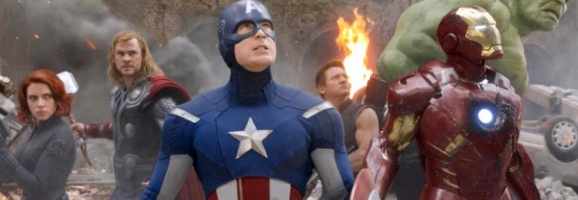
What causes this mass appeal, driving millions of people into movie theaters every year? Does audience interest stem from the action-packed story lines? Is it the improbably beautiful bodies displayed for all to see in Lycra Spandex-covered glory? Perhaps it is the simple promise of two hours of entertainment guaranteed to provide the experience of an epic adventure. Closer examination of the films themselves leads one to believe that the appeal goes deeper than a basic need for entertainment. Though enhanced by super powers or abilities, the superhero as portrayed in today’s films displays an astonishing level of humanity. Audiences watch superhero characters cope with the human experience through these films, an experience with which audience members can identify. Viewers see a part of their own reality on the big screen through superhero characters. This is what makes the characters so relatable and inspirational to the viewer.
Every human being has an origin story. Every person carries a unique past and experiences that color their present character and behavior. In an article for Smithsonian Magazine, Robin Rosenberg argues that it is the origin story that makes superheroes so inspirational. The ways in which the characters respond to their life-changing experiences are what allow viewers to find common ground with and even to identify with superheroes. This is an excellent point, but the source of inspiration goes beyond the origin of the characters. It is inspiring to watch a character cope with adversity by turning it into a strength or a motivator. However it is more than one life-altering event that makes superheroes so admirable: it is the way they handle the entire scope of life as a human and still end up making the altruistic choices for which they are known. That is what makes audiences fall in love with superheroes.
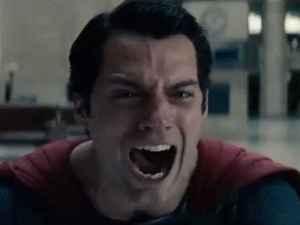
Superheroes are not so different from regular people. Take away their abilities to control fire or teleport and really they are just like everyone else, struggling to deal with what it is to be a person. Even those who are not technically human cannot escape the realities of humanity. This begins with the origin story, as argued by Rosenberg, but humanity is a consistent theme throughout these films. It is displayed as the heroes deal with emotional influence, vulnerability, and a lack of control over the outcomes of any given situation. An examination of the film characterizations of a variety of superheroes in recent years demonstrates this concept.
Bruce Wayne/Batman
As seen in Batman Begins and The Dark Knight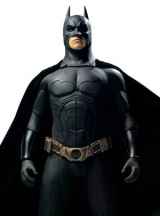
Fully Human: Batman is an example of a fully human superhero. He is extremely wealthy, physically well-trained, and has access to an unending supply of super cool gadgets, but in the end he remains a genetically unmodified, garden variety human.
Life-changing event: In Batman Begins Bruce has the traumatic experience of witnessing the murder of his parents. He blames himself for this event, explaining to Alfred, “It was my fault. I made them leave the theater…if I hadn’t gotten scared…” This experience lays the groundwork for his fear and guilt, playing a key role in his development into Batman. Anyone in the audience who has experienced the loss of a parent or felt responsible for such a tragedy can identify with Bruce in that moment.
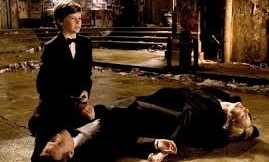
Emotional influence: Bruce Wayne is afraid of bats, a fear which originates in his childhood. When he first descends into what will become the Batcave, swarms of bats fly up around him. He visibly flinches and begins to shy away before he chooses to ignore his fear and allow the bats to fly all around him. Later when Alfred asks him why he chose to emulate bats Bruce replies: “Bats frighten me. It’s time my enemies share my dread.” Here he is admitting that the fear is not gone, but he no longer allows it to control him. The audience literally sees him conquer the fear and turn it into a motivator. This is inspirational indeed; fear is a strong emotion and everyone is afraid of something.
Vulnerability: Many of Bruce’s actions are motivated by love, which makes him vulnerable. In The Dark Knight he is motivated by his love for Rachel Dawes. This becomes a problem when the Joker kidnaps Rachel and Harvey Dent, ties them up in two separate locations and makes it known that they will both die, and only one can be saved. Given what he thinks is Rachel’s location, Bruce rushes off to save her only to find that he has been tricked and was instead given Harvey Dent’s location. Bruce’s love for Rachel made him vulnerable to the Joker’s trickery. What person has never made a poor decision when blinded by love (or what they think is love) for another? Witnessing Bruce make the same mistake puts the audience on common ground with the superhero.
Lack of control: Despite his status as a superhero, Bruce cannot control the outcome of all situations. In Batman Begins he captures Falcone and leaves him tied up for the police to take into custody. This is a short-lived victory when Falcone ends up falling victim to the Scarecrow and is sent to Arkham Asylum instead of prison where he belongs. Bruce Wayne cannot guarantee justice. Similarly, in The Dark Knight he cannot save Rachel. Even though he is a powerful force for good, he lacks control in the actual outcomes of most situations. How human of him. Again the audience sees it’s own experience reflected back through film and can find Batman’s situation realistic and relatable.
Altruistic Act: At the end of The Dark Knight Bruce allows himself to be the villain in the eyes of Gotham by taking the blame for Dent’s crimes. He allows himself to be hunted for murders he did not commit because he is “whatever Gotham needs him to be,” even if that means being the enemy. This is after spending how many nights out on the street putting himself in danger to attempt to clean up the city of Gotham. Bruce gives of himself to a city that does not recognize his good intentions and he willingly continues to let them do so.
Tony Stark/Iron Man
As seen in Iron Man and The Avengers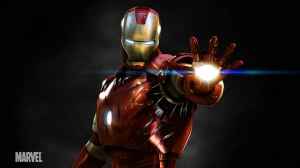
Fully Human: Yes, Tony Stark’s body is modified by the miniature arc reactor which keeps shrapnel from entering his heart. Yes, the arc reactor is what powers his Iron Man suit. But without the suit Tony’s powers are genius and a quick wit; his body gains no additional power from the device. The arc reactor is basically a fancy pacemaker, so for the sake of this argument Tony Stark is fully human.
Life changing event: While in Afghanistan for a weapons demonstration, Tony is wounded and taken prisoner by insurgents who attempt to make him build them a Jericho missile. He lives in captivity for three months before successfully escaping in the first incarnation of the Iron Man suit.
Emotional influence: In Iron Man,Tony is imprisoned with Yinsen, a man from a town called Gulmira who performs the first operation saving Tony’s life. Yinsen helps Tony build the first version of the Iron Man suit, intended to help them both escape imprisonment. Ultimately Yinsen sacrifices himself so that Tony can escape.
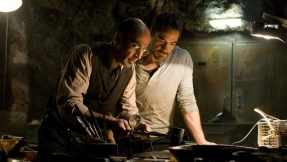
His dying words to Tony are, “Don’t waste it. Don’t waste your life.” Tony’s gratitude towards Yinsen motivates him in many ways. Upon his return to the US, Tony announces that Stark Industries will no longer be producing weapons. His first mission as Iron Man is to fight off insurgents in Yinsen’s hometown of Gulmira destroying the weapons cache there. Tony becomes obsessed with Iron Man and what Iron Man can do. “There is nothing except this…. There is the next mission, and nothing else,” he says to his assistant Pepper Potts. When Pepper threatens to quit if he continues to risk his life, Tony responds, “I shouldn’t be alive unless it was for a reason. I’m not crazy, Pepper. I just finally know what I have to do.” Here Tony verbalizes his wish to fulfill Yinsen’s dying words: to not waste his life. In the Iron Man suit Tony has found his purpose and a way to put all of his talents to use. Viewers identify with Tony Stark here, especially those who have experienced the loss of a loved one and found a way to honor that person’s memory with their actions.
Vulnerability: Tony Stark acts like nothing in the world can stop him or hold him back in the least. In reality, Tony is physically vulnerable. The arc reactor in Tony’s chest powers the Iron Man suit, but it also keeps Tony alive. In Iron Man, Obadiah Stane takes advantage of this fact when he paralyzes Tony and steals the arc reactor to power his own suit. If not for the fact that the older model of the arc reactor was within reach, Tony would have died. Any audience member who depends on a medical device, physical accommodation, or medication can relate to Tony’s dependency on the arc reactor.
Altruistic Act: In the midst of the Battle of New York in The Avengers, the government attempts to solve the problem of the Chitauri invasion by launching a nuclear missile towards the island of Manhattan. When Nick Fury alerts Tony Stark to the situation, Iron Man soars off to divert the missile. He does this by essentially attaching himself to the missile and redirecting it up to the portal and out into another realm. As he does this he knows that he may lose power and not have enough oomph to get back to Earth. He knows he may never see Pepper Potts again. But he also knows that the weapon would destroy New York City, killing millions of people possibly without closing the portal and putting an end to the invasion. Tony is willing to sacrifice his life to save millions of others.
Steve Rogers/Captain America
As seen in Captain America: The First Avenger, The Avengers, and Captain America: The Winter Soldier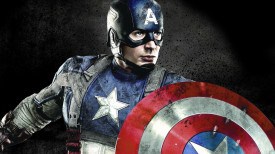
Modified Human: Steve Rogers was born a standard issue human but was modified by an outside influence into an enhanced version. Selected because of his character by Doctor Erskine, Steve Rogers becomes Captain America after being the test subject for Erskine’s “super-soldier” serum.
Life-changing event: Arguably Steve has had several life-changing events, including the deaths of his parents, WWII, and continually being denied the chance to join the Army. The most significant event which changes his life is becoming the Super Soldier.
Emotional influence: It is revealed in The Winter Soldier that only his love for Peggy Carter keeps Steve committed to S.H.I.E.L.D., even when he doesn’t trust the organization. He may be modified physically, but he’s just as susceptible to emotions as the rest of us. At the end of the same film Steve will not fight the Winter Soldier who is really his old friend Bucky Barnes after Hydra tried to turn Bucky into their own super soldier. Steve believes that the real Bucky Barnes is still to be found somewhere inside. He allows Bucky to beat him and will not fight back because of the love he has for the man who was his friend.
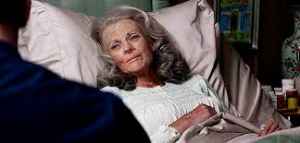
Vulnerability: Steve is more than a little out of the loop, what with being frozen for several decades. As such he missed out on a lot and is often lost in conversation. In The Avengers he gets really excited when he understands a reference to flying monkeys that Thor doesn’t get. Given that he is a man out of time, Captain America often has to rely on others to figure out the technical details of a situation. When he and Iron Man are trying to fix the engine on the helicarrier in The Avengers Steve’s knowledge on the matter is limited to, “It appears to run on some kind of electricity.” His only option is to trust Iron Man’s instructions. Anyone who has been forced to depend on the advice of others, especially those they do not like or trust, can relate to Steve’s experience with the other Avengers.
Lack of control: In The First Avenger Steve thinks he defeats Hydra. He successfully keeps the Tesseract out of Hydra’s hands, only to find during The Avengers that S.H.I.E.L.D. is emulating Hydra by building weapons using the Tesseract’s power. In The Winter Soldier he voices his concerns about S.H.I.E.L.D.’s questionable actions to Director Fury. He is committed to keeping S.H.I.E.L.D. from becoming like Hydra, only to watch the organization fall to corruption from within. Despite all the good he does, Steve cannot keep a whole lot of bad from happening. It is almost as if he is waging a war against Murphy’s Law, a battle which appears very familiar to the audience eye.
Altruistic Act: When all of S.H.I.E.L.D. is falling to Hydra at the end of The Winter Soldier, Steve chooses to fight with only a few to help him. He could easily have walked away especially since S.H.I.E.L.D. had been acting a little too much like Hydra all along. Instead, he implores all faithful S.H.I.E.L.D. agents to fight with him when he says, “The price of freedom is high – it always has been. But it’s a price I’m willing to pay. If I’m the only one, so be it, but I’m willing to bet I’m not.” Steve stands up for exactly what he believes in when it is the most difficult and frightening thing to do.
Peter Parker/Spider-Man
As seen in Spider-Man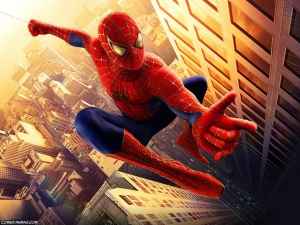
Modified Human: Peter Parker is a regular human being until he is bitten by a genetically engineered super-spider. In Spider-Man the audience sees the spider’s DNA become part of Peter’s DNA, implying that Peter is no longer a complete human and has become part spider.
Life-changing event: Peter’s life is changed when, on a class trip, he is bitten by the genetically altered spider. Overnight Peter develops his spider-like powers including the ability to shoot webs out of his wrists and climb walls just like a spider.
Emotional influence: There are several emotions that influence Peter’s actions but one of the most powerful is his respect for his Uncle Ben. Ben is the one who utters the famous line reminding Peter that “with great power comes great responsibility.” Uncle Ben does not know the extent of Peter’s powers when he says this, but Peter takes this wisdom to heart. After his uncle is murdered Aunt May tells Peter, “You were

meant for great things. You won’t disappoint him.” This reinforces Peter’s desire to honor his uncle’s memory. Instead of using his powers to earn money (as was his first intention at the cage match), Peter turns his attentions to doing good deeds: stopping muggers and saving babies from burning buildings. Much as it did for Tony Stark, the loss of a loved one provides Peter with direction for how to use his powers. Another powerful motivator for Peter is his love for Mary Jane Watson, his crush since childhood. He sees Mary Jane ooh and ahh over Flash Thompson’s new car, then promptly enters the wrestling match in an attempt to win money to buy a car of his own. He talks to Mary Jane whenever given the chance, even taking two trains and a bus just to be in the right neighborhood to run into her. Who in the audience cannot remember being so in love with a childhood crush and going to ridiculous lengths to get his or her attention? This connects viewers with Peter on a very relatable and memory-laden level.
Vulnerability: Just as his love for his family and for Mary Jane influences Peter’s actions, it is also his greatest source of vulnerability. Everyone knows that Peter is in love with Mary Jane (except for Mary Jane, of course), but Peter never does anything about it. This opens him up to feeling distress when Harry starts dating Mary Jane. Once the Green Goblin figures out who Spider-Man is, none of his loved ones are safe. Aunt May gets attacked and ends up in the hospital. Then Mary Jane is kidnapped and the Green Goblin attempts to make Peter choose between saving the lives of dozens of people on a trolley car and saving Mary Jane’s life. The importance of other people in his life makes Peter vulnerable to attack by his enemies.
Lack of control: Peter cannot control when crime happens around him; his spidey-senses go off at any time and off he runs to stop a burglary or another nefarious activity. Criminals do not operate on regular office hours, so it is difficult for Peter to hold down a job. He’s always late and appears lazy, when really he’s off protecting the people of New York City. Finally Peter finds a job that seems too good to be true: freelance photographer for The Daily Bugle, specializing in the capture of photographs of Spider-Man. Even this proves beyond his control as Peter cannot stop J. Jonah Jameson from publishing lies about Spider-Man’s intentions. With all the good his heightened powers allow him to do, Peter still cannot seem to get his life together. Any audience member who has been through those early stages of adulthood can sympathize with Peter as he struggles to keep his head above water.
Altruistic act: At the end of Spider-Man, Mary Jane tells Peter that she has realized she’s in love with him. This is all Peter has wanted since childhood, since he first laid eyes on this girl. But he knows that dating her will only put her in more danger. The audience hearts break for Peter as he does the unimaginable and turns her down, sacrificing his own happiness for her safety.
Kal-El/Clark Kent/Superman
As seen in Man of Steel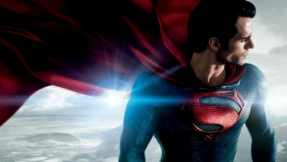
Non Human: Superman never was a human being. Born on Krypton as Kal-El, he was sent to Earth by his parents to save him from the imminent destruction of his home planet. But he was raised on Earth by humans so he has an understanding of the human experience.
Life-changing event: Being sent to Earth by his parents immediately after birth. This forced him to adapt to the Earth’s atmosphere which made him stronger and more powerful. It also forced him to spend most of his life trying to figure out who he really is, where he belongs, and coping with the fact that he is different from everyone else.
Emotional influence: Loneliness is a big factor for Superman. Although well-loved by his Earth parents, the fact remains that he is the only one of his kind on the planet. When other Kryptonians do show up (General Zod and cronies), things don’t go very well and Superman is forced to choose between the Earth and people he loves and the people to whom he technically belongs. His love for the people of Earth is rivaled only by the love of those like Gandhi, Mother Teresa, and Jesus Christ; ultimately he’s willing to surrender himself to Zod to protect them all. He is also deeply connected to his Earth parents, Jonathan and Martha Kent. It is his love and trust in Jonathan Kent that makes him keep his identity hidden until the people of Earth are ready to handle the knowledge that they are not alone in the universe.
Vulnerability: It’s hard to imagine the Man of Steel being vulnerable to anything, but it is true. Raised on Earth as Clark Kent, he was exposed to the Earth’s sun which made him more powerful, but he loses strength in a Kryptonian atmosphere. In Man of Steel Lois Lane and the audience watch as he suffers through his body adapting to the atmosphere of the Kryptonian ship. He is also vulnerable to doubt. In trying to decide whether or not to surrender to Zod, Superman turns to a priest for advice. He tells Father Leone, “Zod can’t be trusted. The problem is, I’m not sure the people of Earth can be either.” He is very aware that if he surrenders and saves the people of Earth he may still find himself under persecution by those he saves because, as Jonathan Kent says, “People are afraid of what they don’t understand.” At some point most people have had to make a leap of faith, choosing to trust where they are not sure trust is deserved; in this situation the audience finds common ground with Superman.
Lack of control: Throughout his life on Earth, Clark had to learn to control his powers, to focus his senses so they would not become overwhelming. He becomes the master of his own senses, but still cannot control the fact that people come after him. When Lois first discovers him and his abilities he cannot convince her to leave him alone. At the end of the film he destroys a government drone because he cannot keep the government from trying to track him down. And even though people know that Superman exists, he still has to maintain his human identity as Clark Kent in order to avoid persecution.
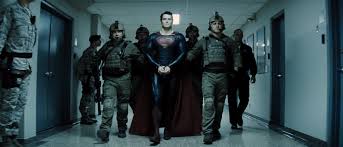
Altruistic Act: Clark reveals his long-protected identity to everyone when he surrenders to Zod. In doing so he takes a huge leap of faith choosing to trust the people of Earth with his true origin and knowledge of his powers.
The Avengers: Superhero Group Dynamics
The film The Avengers featuring Iron Man, Captain America, Thor, The Hulk, Hawkeye, and Black Widow demonstrates typical group dynamics common to the human experience. Imagine a group of graduate students are placed arbitrarily into a group for the final and most important project in their degree program. These kinds of groups always seems to contain stereotypical personalities. There is a know-it-all (Iron Man), the one who is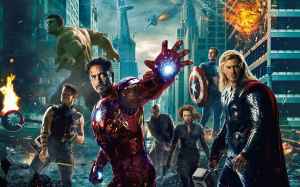 intelligent and has lots of opinions, but is so vocal about those opinions that the rest of the group feels alienated. A goody-two-shoes (Captain America) can be found fretting over the tiny details, worried only about doing the project “right” and bothered by those who think outside the box. There is the smart but quiet one (The Hulk) who is a bit awkward and makes everyone else feel a little uncomfortable at times. Usually there is one group member who is smart enough and has a lot to contribute, but is so beautiful and charming that he or she could make it through life on looks alone (Thor) making the other group members feel somehow insignificant. Finally, there is that one student who ends up doing a lot of the dirty work that the other group members either cannot or will not do. As a result this final stereotypical student often does not trust any of the other group members and feels only able to depend on his or herself (Hawkeye, Black Widow). Often it is only the need to earn a good grade that forces these groups to find a way to get the work done. These dynamics within such groups can be found in classrooms and offices worldwide, any time people are forced to work with others they do not know or trust.
intelligent and has lots of opinions, but is so vocal about those opinions that the rest of the group feels alienated. A goody-two-shoes (Captain America) can be found fretting over the tiny details, worried only about doing the project “right” and bothered by those who think outside the box. There is the smart but quiet one (The Hulk) who is a bit awkward and makes everyone else feel a little uncomfortable at times. Usually there is one group member who is smart enough and has a lot to contribute, but is so beautiful and charming that he or she could make it through life on looks alone (Thor) making the other group members feel somehow insignificant. Finally, there is that one student who ends up doing a lot of the dirty work that the other group members either cannot or will not do. As a result this final stereotypical student often does not trust any of the other group members and feels only able to depend on his or herself (Hawkeye, Black Widow). Often it is only the need to earn a good grade that forces these groups to find a way to get the work done. These dynamics within such groups can be found in classrooms and offices worldwide, any time people are forced to work with others they do not know or trust.
In The Avengers this team of superheroes is faced with an alien invasion over New York City. These six heroes cover the range from fully human to non-human, each with their own special skills and personality quirks. Watching these characters interact is like watching any group of independent people attempt to work together, much like the described group of graduate students. The audience sees Iron Man, Thor, and Captain America challenge each other and engage in a pointless fight, an epic battle of egos. They see Thor scoff at human evolution and hear Tony Stark antagonize pretty much everyone with his snarky comments and nicknames (“Better clench up, Legolas”). They watch as Black Widow and Thor fight off The Hulk when Bruce Banner loses control of his anger. It is not until Agent Coulson is killed that these characters finally realize what they need to do and finally find a way to work with each other. Moviegoers recognize that feeling of reluctance when it comes to working with a group of people. They find solace in the fact that superheroes are not immune to those group dynamics that regular people deal with in countless situations.
Why does it matter?
In each of the cases above superheroes demonstrate that while they have enhanced powers and abilities and can save the world from alien invasions and psychotic killers, they still have to deal with the realities of being a person. In spite of these realities, all of which the audience can relate to, our heroes still make those altruistic choices that everyone would hope to make if presented with the same situations. Moviegoers walk out of the theater feeling enthralled and inspired.
But still, what does it matter if a superhero film leaves the audience feeling inspired? It seems unlikely that we will need to use that inspiration to fight off an imminent alien invasion. Instead, it is important because it builds us up for the little battles we face in our daily lives. If Batman can deal with not being able to save Rachel Dawes, one can certainly survive being stood up for a date. If Superman can sacrifice himself to save everyone on Earth, a football fan can skip watching one game to help a friend in need. And if the Avengers can figure out how to work together long enough to save the world from alien invasion, coworkers who dislike each other can power through a joint project for the sake of the work at hand. Where a viewer finds common ground with a superhero they find a source of strength, of courage, of inspiration. People walk around wearing Batman shirts, drinking from mugs emblazoned with Captain America’s emblem, collecting little vinyl figurines of their favorite heroes. Doing so reminds them that these heroes deal with the human realities running rampant in their own lives, a comforting thought for many an audience member.
In Batman Begins Thomas Wayne says to his young son, “Why do we fall, Bruce? So we can learn to pick ourselves back up.” Regular people go through life falling and picking themselves up without the assistance of any super gadgets, super serum, or super sonic hearing. Every now and then it helps to be reminded that even those called superheroes relate to the struggle.
What do you think? Leave a comment.











I personally believe we love mythical superheroes because so many of our leaders – those who should be saving the world – are such a tragic disappointment.
Hey, fair enough! But perhaps we hold our leaders to an inhuman standard. If superheroes cannot rise above human foibles how can we expect politicians to?
That said, I totally understand the feeling of disappointment.
If only comic book hero’s could come to life, then we might have something worthwhile to look up to!
I am a superhero junkie, I am a recovered comic book geek. I loved the concepts presented in the comics, and I have a healthy understanding that what the superheroes do is not reality…but I also have a healthy understanding that if God wanted to do anything that they do in the comics…He could. There are some very interesting undertones in many of the comics on many of society’s issues. Good read!
That is actually what got me thinking about the topic to begin with. Superheroes do all these amazing things, but at the end of the day nothing has really changed. I’ve heard someone say that heroes can save someone physically, but can’t save anybody’s soul. That fact accompanied with the fact that so many people find meaning in these stories is something to be contemplated.
This is great! I like how its easy to deconstruct a simple character like a comicbook superhero and see a deeper, refreshing meaning. Who says comics arent educational!
Agreed. It makes me feel better about how much I enjoy their stories.
Many comic books/graphic novels are just bubbling over with philosophical/political/spiritual themes..
Very true. It gives you a lot to think about!
Enjoyed this post. I didn’t grow up reading comics but in the wave of comic movies I have found myself falling in love with them.
Thank you! Same, I did not get into the comics until I saw the movies. Now it’s great because there are so many other story lines to explore when you go back to the comics.
I enjoyed your article, and I agree on what you noted about the humanity of superheroes. I watch super hero movies for the hope that they can bring. I like stories that show everyday people overcoming impossible odds, so The Avengers was a great movie to watch.
Here’s a revolutionary idea: create new characters!
Wong to Strange: “You wanted more?”
Since a kid i love reading superhero stories.Now i have understood why.Its because of what they represent:the good.
I think its interesting how the genre of superheroes tap into the universe beholding thirst every human being has for a fearless leader, an extremely capable power, a reliable force equal to perfect morality.
Really good read. I have been reading and watching superhero stories ever since I remember. So many good ones. I found a new Japanese comic (Manga) called Ultimo, crafted by Stan Lee and a Japanese artist, which contains allegorical characters. they are machines, but they embody good values (charity, justice, truth, etc…) and there are purely evil ones (vice, pride, greed, etc…) and its a fight between ultimate good and ultimate evil. So interesting.
Agreed. The characters can represent such ideals and values and yet their stories are sometimes ignored or viewed as childish when really they represent things that full-grown adults deal with every day.
The clearest form of the superhero archetype is the hero versus the dragon. That is where challenges of life and despair attempts to swallow up each one of us.
Great article.You got it all right.
The shift in our perspective of superheroes was all thanks to Stan Lee himself. Back when DC dominated the market the world loved superheroes because they were so un touchable (old school superman was practically a God). But this modern perspective you’ve presented definitely is why we love super heroes today. Great article 🙂
I think that’s what they’ve done to these characters to make them more accessible to a wider audience. I’m all for old-timey untouchable superheroes but I do not relate to them on a human level. But give me Christopher Nolan’s Batman and I’m in awe (and in love). His courage in the face of everything can provide such strength because he is so much more relatable, even as a billionaire.
You’ve done a great job of analysis of the super hero genre and its relationship to our human motivations to get wrapped up these films.
I believe behind every superhero loving person there rests a human just wanting to help the human race. Maybe if we emblazon our shirts/notebooks/car mats with enough memorabilia we’ll actually do something for a change.
I think we definitely try to identify with superheroes. Because they heighten human emotions, skills and traits I think we believe that we would be these do-gooders if only we had the power to.
This is a great reference to go to if you forget anything about a superhero. The profiles format was really great for this article and made everything easy to find and understand. Great job!
Super-hero films aren’t just telling people be good to everyone around you. They have deeper ann more complex messages to discuss. For example, X-men dealing with prejudice, or The Dark Knight dealing with Anarchism.
Also capes.
Frankly I believe the super-hero image and appeal in American culture reflects the tragic flaw of the American character in its history that has caused so many deaths in so many wars.
Bravo on a well thought out and meaningful article…
A rarity among those who attempt to explain everything.
That was a great read. Thanks so much!
Thank you!
The way you broke down all of the different heroes to show how they matter to audiences was an interesting read. It really made me think about some of the superhero films of the past decade.
Thanks! I think this argument could apply to most if not all of the superhero movies I have seen.
Thank you for showing the humanity in these creations.
Thank you!
Superheroes are apolitical. They’re not rightwing, they’re not leftwing, they do whats right and proper and what needs to get done. We love them.
Good point, I didn’t even think about the politics of it all.
That makes me like superheroes more! They don’t care who you vote for.
Terrific post. Superheroes have always been a reflection of the emotional struggles people go through on a daily basis. With blockbuster films now arguably being the most popular way for these characters to be exposed to general audiences, these connections to superheroes are even more significant.
Absolutely agree with this post! It’s well developed and thought out. We’re in an era now where superhero films are almost needed. It’s like when the real world is bad, the movies can save the day!
This was a great post. The Superhero genre is a major force today in movies and Marvel seems to be going for a continuity tying all previous movies together with the Avengers continuity. One can only hope the upcoming Man of Steel movies adds to the DC genre beyond it strength in TV series. You should write an article on Gotham.
Thank you! I have an idea for an article about Agents of S.H.I.E.L.D., which will do nothing to contribute to DC, but I haven’t seen much of Gotham yet. Soon, I hope.
I especially loved your take on super heroes because I absolutely believe it’s relatable to human experiences. Anyone can be a super hero even if you are not a modified human. Well written. Bravo!
Your article caught my eye because I actually am NOT fan of superhero movies, and I wanted a detailed explanation as to why everyone else is so obsessed with them, haha. But then you said “everyone likes at least one superhero” and I had to admit to myself that I do appreciate the Batman trilogy! Good article, cool topic 🙂
Great read, and very accurate analysis! I find my attraction to the superhero movies are based entirely on what everyone wants to be. Coming in almost every variety, most people can find an ideal personality that they can look up to- and action packed fight scenes are just a bonus.
Great job!
This is well written, but somewhat heavy handed in my opinion. While I don’t disagree with your points I do think they’re too specific to apply to the entire movie audience. This a fanboy perspective, and I don’t mean to imply that’s a problem; I’m a fanboy myself. It’s just written mostly in generalities I don’t think apply to most people.
Nevertheless, good read.
I agree. I know this will not apply to the whole audience, but I do think it explains why people with very little interest in superhero characters can enjoy a superhero movie. But I don’t doubt that many people go for the action sequences and could not care less about the characters.
I’m a sucker for super hero films, regardless of the cheesy dialogue and outrageous plots.
Megan, I like your take on superhero movies. I think it hits on some very visceral themes we can all identify with. If I may, I’d like to add a slightly alternative perspective. There is something about taking a fragile human and enhancing them with special qualities that seems to resonate deeply with us. Superhero stories are not new. They’ve been around since Beowulf and earlier I imagine. If it was the hero archetype in general that we connected with, I’m not sure we would continue to see reincarnations of this “enhanced human” in so many new stories. There is something specifically about supernatural powers in these heroes we identify with. Sometimes you see heroes who are required to develop their enhanced skill under a mentor before using it in the arena or whatever trials they face. However, though superheroes do have to get comfortable with their new or different abilities, they do not often have to spend most of their time training. Even if they do, the film does not always strongly emphasize this aspect of their journey. They might have to adjust to their new abilities (as in the case of Spider man), or adjust to their new responsibility (like when Iron Man has a change of heart during his captivity), but in the end their power is mostly innate. It represents an inherent quality that they are usually born with or simply given, that cannot be taken away and consequently cannot be dramatically enhanced further. It seems like this special inborn ability that sets the hero apart from and makes them more powerful than others, is what we connect with because we wish to see that in ourselves as well. However, not all heroes function this way. In the case of Luke Skywalker, while he does already inherently possess the ability to use the force, he first has to train diligently before he can use that ability. Harry Potter similarly has to train for years under his mentors before he is ready for the final “battle” with Voldemort. Throughout his training he suffers failures but continues to receive help and guidance. What is interesting to me is that, even though Luke and Harry possess superhero like qualities, we would never think to call them superheroes. It seems to me that the distinguishing characteristic between a superhero and a regular hero is not necessarily their ability, but how they came into their ability. The reason I feel this distinction is important is that, in connecting with these superheroes, we might start to interpret our own journeys by their unreachable standards. If we try to do something difficult but fail, we might come to the conclusion that we simply were not strong or brave enough. Coming from a regular hero’s perspective, our failure might instead be interpreted along with the knowledge that we can work to make ourselves better equipped to handle more difficult challenges. Especially when it comes to self-esteem in children, this difference in perspective could literally change their future. I love superhero movies and I am in no way trying to say that they are harmful. I simply want to point out that we can miss out on the good themes these movies portray through an unhealthy interpretation as to how they relate to our own lives. Megan beautifully outlines the great qualities in superhero movies that we can aspire to. In writing this response, I simply wanted to show that we need to be careful not to misinterpret the messages that these movies try to get across. I would love to hear other thoughts on this.
I think there is also a lot to be said for the characters who surround superheroes and how they respond to the superheroes themselves. Like Pepper Potts. She’s a regular human and she deals with Tony Stark and she does all these great things without any superpowers. She would not be defined as a superhero, but she is still a remarkable person. There are many characters like her: Rachel Dawes, Aunt May, Martha and Jonathan Kent.
Perhaps the best representation of this is Phil Coulson. He is not a superhero but is probably the best example of an ideal human because of his selfless actions throughout the Marvel movies and in Agents of S.H.I.E.L.D.
Superhero characters are held above everyone else and highly admired, but they are also surrounded by non-super heroes who help to keep them on track. There is value to be found in those characters as well. This article totally ignored that aspect of the stories, but I believe that those regular human characters have just as much value, if not more than the heroes themselves.
Thank you for your response!
Nice article, well laid out, good analyis! I don’t know if anyone has said it already, (i can’t be bothered to read all the comments right now i’m afarid!) but I always assumed the superhero appeal was that mixture of humanity and, as you say, inspiring us to fight little battles, and the idea that it COULD be anyone behid the mask. Yes, it’s obviously Brue Wayne, or Steve Rogers etc. The mask is what makes it acheivable for all of us. The fact that in the comics, there are often 1, 2 even 3 alias’ to the same superhero when one steps down/dies. Its the same appeal as Robin Hood etc. The really cheesy BBC version hit the nail on the ‘We are Robin Hood’ and we are superman, too.
I think you hit every major reason why I love superheroes in movies. I think superhero films work not only as a great form of entertainment, but also as personal stories that inspire its viewers to aspire to good values – to be selfless and help others in need. I especially like how more recent superhero films highlight the flaws and vulnerability underneath their powers to show that they are just like any other person struggling through hard times. I find their stories entertaining and inspiring, and it is why I still continue to go see them today. Great article!
I really enjoyed your post Megan. I am teaching Year 11 English at the mo and we are looking at audience response to super hero texts. This is a perfect example of a written response! I hope you don’t mind me using it as an example for my students. Very inspiring!